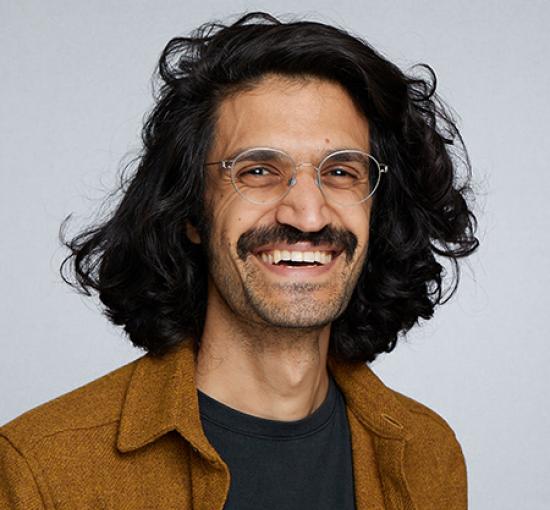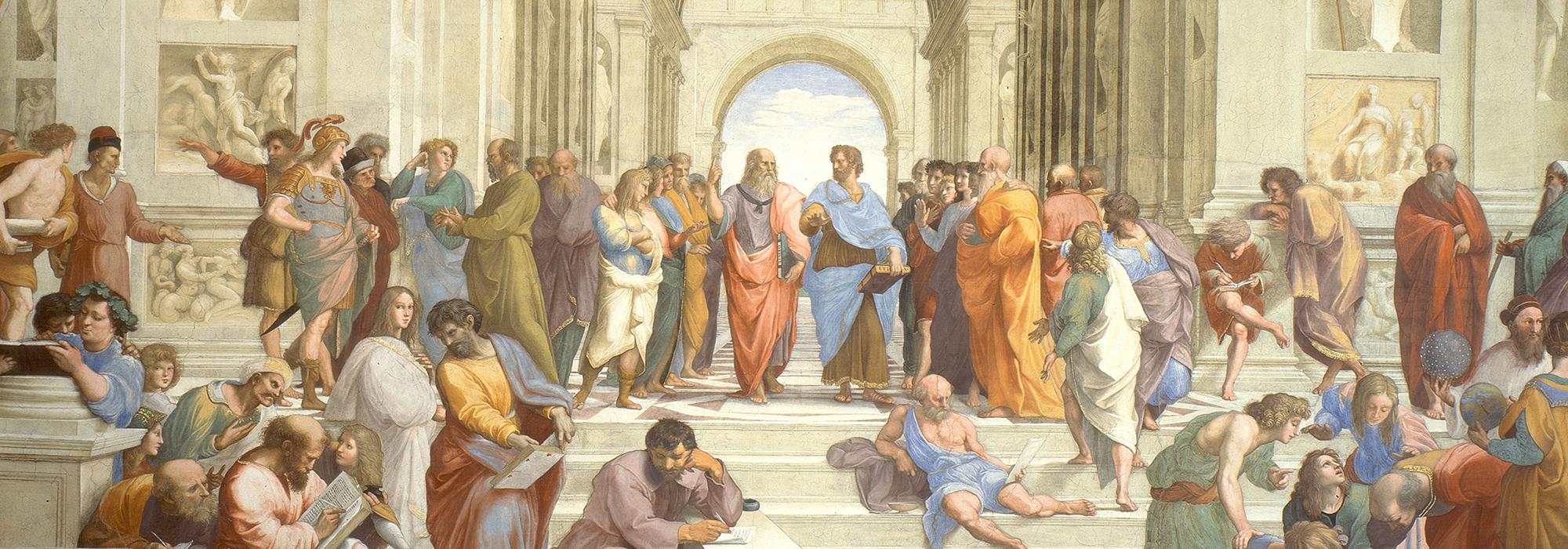
Philosophy, Politics and Economics (PPE)
We have a large PPE team at Merton, with at least two Fellows in each of the three subjects. This allows us to have extensive 'in-house' teaching, and gives students a diverse experience from tutors who are at the forefront of their own particular fields. In our experience excellence in research and teaching quality go hand in hand.
We are often asked by potential applicants whether we regard maths at AS level or equivalent as essential to study PPE at Merton. While most students at Merton have this qualification, not all do. However students do need an aptitude for doing maths to cope with first year economics and the logic component of the philosophy course.
Eight.
- Luigi Marini, Stipendiary Lecturer in Politics
- Dr Nick Tasker, Stipendiary Lecturer in Philosophy
-
Professor Nathaniel Lane, Tutorial Fellow in Economics
- Although our students take their subjects seriously, this certainly does not prevent them taking a full role in other college and university activities. For example, JCR presidents and committee members are often PPE students. The Neave Society is a student-run group which holds discussions on politics and current affairs, and also attracts well known external speakers.
- The PPE Reading Group is a chance for students to choose a book from a list provided by their tutors, read it over the vacation period, and then meet up as a group to discuss it just before the start of the term. The books chosen are classics or important contemporary references, whose topic sits at the intersection between the three subjects. The group read one book over each vacation period, and all PPEists are encouraged to attend.
- Our students' exam performance is very good: a good 2.1 is the norm and there are many firsts. However, tutorials are not primarily designed with exam performance in mind. Our main goal is to help students increase their knowledge of each subject and to see how this can add to their understanding of the world around them.
- While a majority of our students come from the UK, PPE is also a popular choice for overseas students. In recent years students from Denmark, Germany, France, Spain, Australia, Hong Kong and Singapore have studied PPE at Merton.
Most students at Merton get a job straight after their degree, although a significant number go on to do post-graduate courses. Recent destinations include working for the civil service, financial institutions, management consultants, accountants, working as teachers. Those continuing in education have done the MPhil in Economics at Oxford among other degrees.
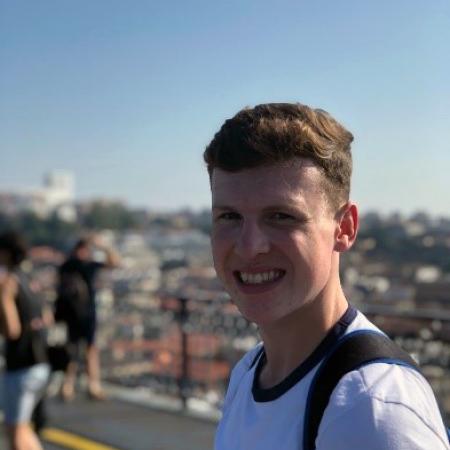
Name: Zak Angell
Year: 1
Where are you from?: Hampshire
Why Merton?
The location of Merton is perfect – central, but set back from the High Street – and the grounds and buildings capture the ‘Oxford’ atmosphere.
Best thing about your course?
The ability to choose whether to carry on with all three of Philosophy, Politics and Economics after your first year gives the student the ability to really tailor their degree to their own interests.
Best thing about Oxford?
Being surrounded by incredible history every day – the vase donated by Tsar Alexander I of Russia, housed in Merton’s chapel, is a personal favourite!
Best thing about the collegiate system?
The collegiate system ensures that you always have friends around that you bump into in college, and rather than feeling like a very small part of a big university, you feel like you can really contribute to the environment around you.
Most important thing you’ve learnt?
One key lesson that I’ve learnt during my time here is not academic. It is that most people have something negative going on in their lives, that everyone struggles with things, and that everyone has feelings. So, being kind, being thoughtful, and understanding that someone may be struggling with something that you don’t know about, is crucial.
Favourite place to eat?
Lunch in hall is great value for money, with lots of choice available too!
What do you do in the holidays?
In the holidays I spend a lot of time with my brothers playing FIFA on the Xbox, or going to football games, as well as catching-up on any reading that I didn’t have time to complete during the term.
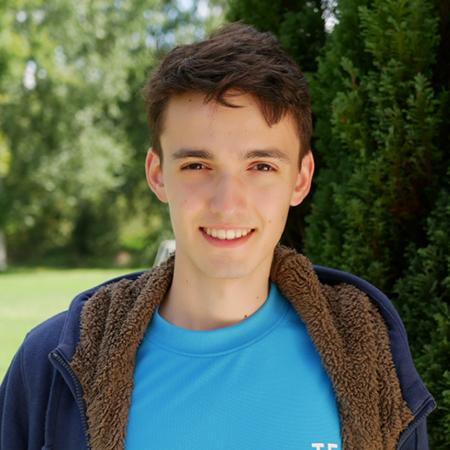
Name: Matteo Baccaglini
Year: 2
Subject: Philosophy, Politics and Economics (PPE)
Where are you from?: Merton, London (It’s a coincidence I promise!)
Why Merton?
My school brought me to Merton as part of an outreach programme and I fell in love with it immediately! It’s such a beautiful college. Also, I looked up the PPE tutors when I applied and their (diverse!) interests lined up with my own.
Best thing about Merton?
Everyone at Merton has always been so friendly! It’s large enough that you don’t feel part of a bubble but small enough that you get to know everyone and feel proudly rooted in a welcoming community.
What were you worried about before you arrived?
I worried that I wouldn’t be anywhere near as smart as everyone else in Oxford. However, because of the tutorial system, Oxford doesn’t feel as competitive as I feared. Also, you quickly appreciate – and learn so much from! – how everyone has different interests and strengths even within the same course.
What’s the work like?
Other than lectures and tutorials, most of your week is actually free to organise as you like – subject to the weekly deadlines for submitting work! That means that the work isn’t as intense as you might expect: you can organise your time however best suits you. So with good habits, you can do lots of work and plenty of other things around Oxford without even realising how much you’re doing!
What are tutorials like?
They vary quite a bit: often they’re one-on-one but sometimes they’re run with larger groups. Some tutorials feel like classes; others are more like friendly but academic discussions. Some tutors like to focus on the work you submitted whereas others like to speak more generally about the week’s topic. The close contact with tutors means that tutorials are a great way to explore any questions or difficulties that you came across during your preparation. They can get really lively and stimulating when you disagree!
What do you do when you’re not working?
I really enjoy meeting up with friends; we often cook together in the evenings. There are also lots of events around Oxford from student-run societies, such as discussion groups and celebrity speaker events, so I enjoy going to them and meeting new people!
Favourite place to go out?
I really love Turf Tavern – it’s a quaint historic pub hidden behind some alleys. Everyone who’s ever been to Oxford of whom you’ve ever heard has been there, from CS Lewis to Stephen Hawking! The prices for food and drink are manageable; it’s the perfect place to meet up with friends and relax.
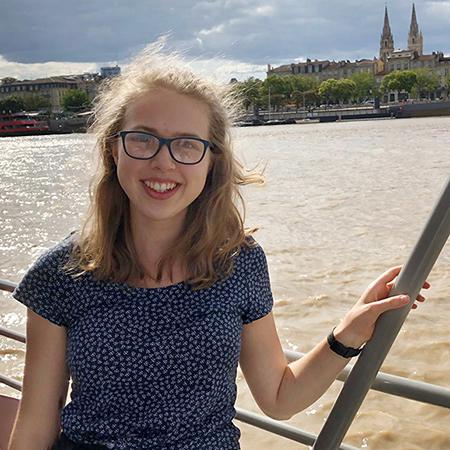
Name: Jessica Searle
Year: 2
Where are you from?: London
Best thing about Merton?
The best thing about Merton is definitely the people here, both the staff and students. One of the things that drew me to Merton was how friendly the student helpers were on the open day, and now attending the college, I can wholeheartedly say that this is very representative of the entire student body. All the staff at Merton, from the welfare team to the porters, from tutors to hall staff, are always helpful and kind as well. It makes Merton feel even more like a safe and welcoming environment.
How has Oxford changed you?
Being at Oxford has made me much better at saying yes to opportunities when they come along and has also made me more likely to give new things a go! Oxford is a busy and intense place, and there is always a lot going on. When so many people around you are clearly trying things out and saying yes to things, it makes you more inclined to do the same because you can see how much fun it can be.
How do you cope with the workload?
The workload at Oxford is much more manageable than I originally thought I would find it, and planning carefully in advance is what has really helped me. At the beginning of the term, I create a rough plan of when I’m going to get my work done based on my deadlines, and get into a weekly routine. I find having a structure very helpful – it means I stay on top of things!
What do you do in the holidays?
Even when it’s not term time, I aim to take up all the opportunities that Oxford and Merton have to offer. I’ve worked for the college, helping at interviews and the annual telephone fundraiser, and also stayed on to help out with open days. They don’t just offer work; I also received a travel grant from Merton to go to language school in Bordeaux for a fortnight over the summer, which was a fantastic experience! Otherwise, I enjoy relaxing and catching up with friends at home, and try to make time for some consolidation of the term’s work as well.

